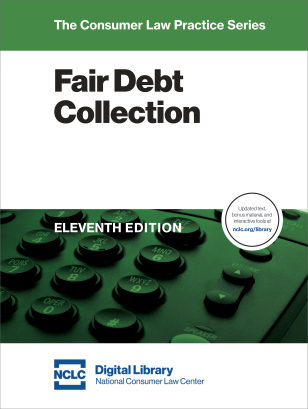Debt Buyer Cannot Avoid FDCPA Coverage by Hiring a Third Party to Do Its Collecting
In Henson v. Santander Consumer USA Inc., 137 S. Ct. 1718 (2017), the Supreme Court held that Santander was not a debt collector under the Fair Debt Collection Practices Act’s (FDCPA’s) second definition of debt collector under 15 U.S.C. § 1692a(6). This narrow opinion held that a debt buyer is not subject to the FDCPA as an entity regularly collecting debts owed or due another, leaving intact the alternative approach of showing that a debt buyer qualifies as a debt collector under the FDCPA because the principal purpose of its business is the collection of debts.
In Barbato v. Greystone Alliance, L.L.C., 2019 WL 847920 (3d Cir. Feb. 22, 2019), the Third Circuit held that the debt buyer, Crown Asset Management (Crown), is a debt collector under the “principal purpose” prong, holding that “an entity that otherwise meets the ‘principal purpose’ definition cannot avoid the dictates of the FDCPA merely by hiring a third party to do its collecting.”
The Court Rejects Debt Buyer’s Arguments Opposing FDCPA Coverage
Crown purchased portfolios of charged-off consumer debt and hired collection agencies and collection attorneys to collect the accounts on its behalf. Crown argued that its principal purpose was acquisition of debts and not their collection.
The Third Circuit found that there is no requirement that the debt buyer take an overt act of collection in order to qualify as a debt collector under the “principal purpose” prong of the definition. The court reached this conclusion after contrasting the language in the “regularly collects” prong (defining a debt collector as any person “who regularly collects or attempts to collect ... ”) with the language in the “principal purpose” prong (defining a debt collector as “ ... any business the principal purpose of which is the collection of any debts”). The court noted that the “regularly collects” prong used the verb collect—indicating a requirement that the collector takes overt action—while the “principal purpose” prong used the noun collection—indicating a focus on what is collected rather than the act of collecting.
Rejecting Crown’s argument that this interpretation would effectively read the word indirectly into the “principal purpose” prong where it does not belong, the Third Circuit explained that collection “by its very definition may be indirect.” Affirming its prior holding in Pollice v. Nat’l Tax Funding, L.P., 225 F.3d 379 (3d Cir. 2000), the court concluded that the existence of intermediaries did not change the principal purpose of Crown’s business—purchasing debts for the purpose of collecting on them.
Next, Crown argued that the legislative purpose of the FDCPA was to cover entities that hound consumers for money and not “passive debt owners.” The Third Circuit explained that, while original creditors might have an incentive to cultivate good will with their customers, debt buyers have only one incentive—to get consumers to pay money. Thus, the court concluded that debt buyers’ incentives are far more closely aligned with the third-party collectors Congress intended to cover than the creditors collecting their own debts Congress intended to exclude.
Crown also argued Henson meant that it was a creditor and not a debt collector because the two terms were mutually exclusive in the FDCPA. Since Henson rejected the default test—a method of determining whether an entity was a creditor or a debt collector based on whether the debt was in default when acquired—the Third Circuit concluded that the Supreme Court had rejected the basis for treating “creditor” and “debt collector” as mutually exclusive terms. Citing Tepper v. Amos Fin., L.L.C., 2018 WL 3733862 (3d Cir. Aug. 7, 2018), the Third Circuit reaffirmed that an entity can be both a creditor and a debt collector under the FDCPA if it satisfies both definitions.
Barbato Provides Guidance As to Debt Buyer’s FDCPA Liability for Acts of Its Agents
In Barbato, the Third Circuit remanded the case to the district court to determine the debt buyer’s liability for the acts of those collecting on its accounts. In doing so, the Third Circuit set out some guidance for the lower court. First, a debt buyer can be liable for the acts of its agents even though the debt buyer did not exert any actual control over the collection agency’s FDCPA violation. In addition, while probably not relevant to this case, the Third Circuit also stated that a debt buyer can be liable for the FDCPA violations of its agents even if the agents are not covered as debt collectors under the FDCPA.
Additional Resources
For more about Henson v. Santander Consumer USA Inc., see FDCPA Coverage of Debt Buyers: Implications of Supreme Court’s June 12 Ruling in Henson. For additional resources related to Henson, including the appellate brief filed in Barbato, see www.nclc.org/litigation/henson-v-santander.html.
For a discussion of debt buyer coverage under the FDCPA, see NCLC’s Fair Debt Collection § 4.2.4. For a discussion of post-Henson cases addressing coverage under the “principal purpose” prong of the FDCPA, see NCLC’s Fair Debt Collection § 4.2.2. For more on a debt collector’s FDCPA liability for the acts of its agents, see NCLC’s Fair Debt Collection § 2.8.


